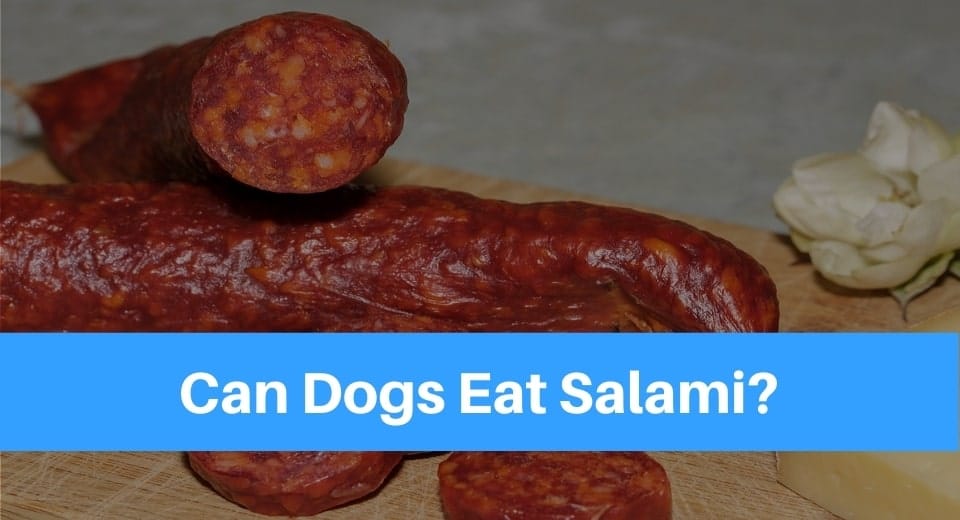Dog owners love to share food with their dogs, but not all human foods are good for dogs. One of the human foods that dogs prefer is salami. Salami may seem like a good thing that should be given to dogs and dogs really enjoy this food. When dogs see their owners eating salami, they simply grab it from them.
They are often attracted by its intense smell and they want to taste it. But, we know that not all human foods are safe for dogs. There are certain foods that can be very harmful to dogs. Is salami one of them?
In this article we will give you the answer to this and similar questions. We will tell you something more about salami and its effects on a dog’s health.
What Is Salami?
Salami is a type of cured sausage that consists of air-dried and fermented meat. It is usually made up of beef or pork meat, in combination with various herbs, spices, and salt.
Salami contains large amounts of fat and it should not be eaten too much. If you eat salami regularly, you could get some extra pounds and become obese. Also, some health issues are possible if salami is a part of your regular diet.
Is Salami Safe for Dogs?
Maybe we will disappoint you, but your dog should not eat this food. Although salami is not on the list of foods that are poisonous to dogs, it is recommended not to feed your dog with it. The principal reason why salami is not good for dogs is a big amount of fat which is contained in salami. It is just as bad as feeding your dog caramel, which is sugary.
Studies have shown that fat makes 26% of salami and it is known that fat-rich foods are bad for dogs. You should eliminate these foods from your dog’s diet. Dogs can not process well these foods, so they can have many health issues after eating them. Because of that, you should avoid giving your dog salami and other processed and heavily spiced and salted meals.
Health Risks of Eating Salami
There are many health risks of eating salami or other foods that are high in fat. If you give salami to your dog regularly, that can lead to inflammation of the pancreas, called pancreatitis. This condition is very painful and dangerous for dogs. Also, daily consumption of salami can make your dog become obese, which can cause heart problems and increase the risk of some cardiovascular diseases. It is also found that many cooked and manufactured meat products may contain sulphite preservatives, which can cause thiamine deficiency and even lead to death.
Also, some possible side effects of eating salami can be diarrhea, blood stools, vomiting and other problems of the gastrointestinal tract. Even a small portion of salami is enough to cause some side effects. If your dog is allergic to some of the ingredients in salami, the symptoms would be even worse. If you notice some of these symptoms in your dog, you should take him to the vet right away.
Knowing all that, you certainly won’t give your dog salami, but if your dog has already eaten a slice of salami, you should not panic. Salami is not toxic to dogs and a little amount of salami won’t cause any health issues to your dog. But, don’t give him any more salami in the future.
Final Thoughts
As you have seen, salami is not recommended for your dog because its high-fat content can cause many side effects and lead to serious health issues.
Also, you shouldn’t feed your dog with anything else that is rich in fat. Apart from salami, you should also avoid french fries and other foods which are fried in deep oil. You should know that dog’s regular diet contains all the necessary nutrients and there’s no need to give dogs some other foods. That is the way to keep your dog healthy and full of energy. Dog’s digestive system is not the same as ours, so any high fat food is not good for your dog. Before giving your dog any food which is not a part of his regular diet, it is recommendable to consult your veterinarian. He will give you the advice about the foods that your dog can or cannot eat.
Learn more about canine diet and read our article on cranberries as dog food.

